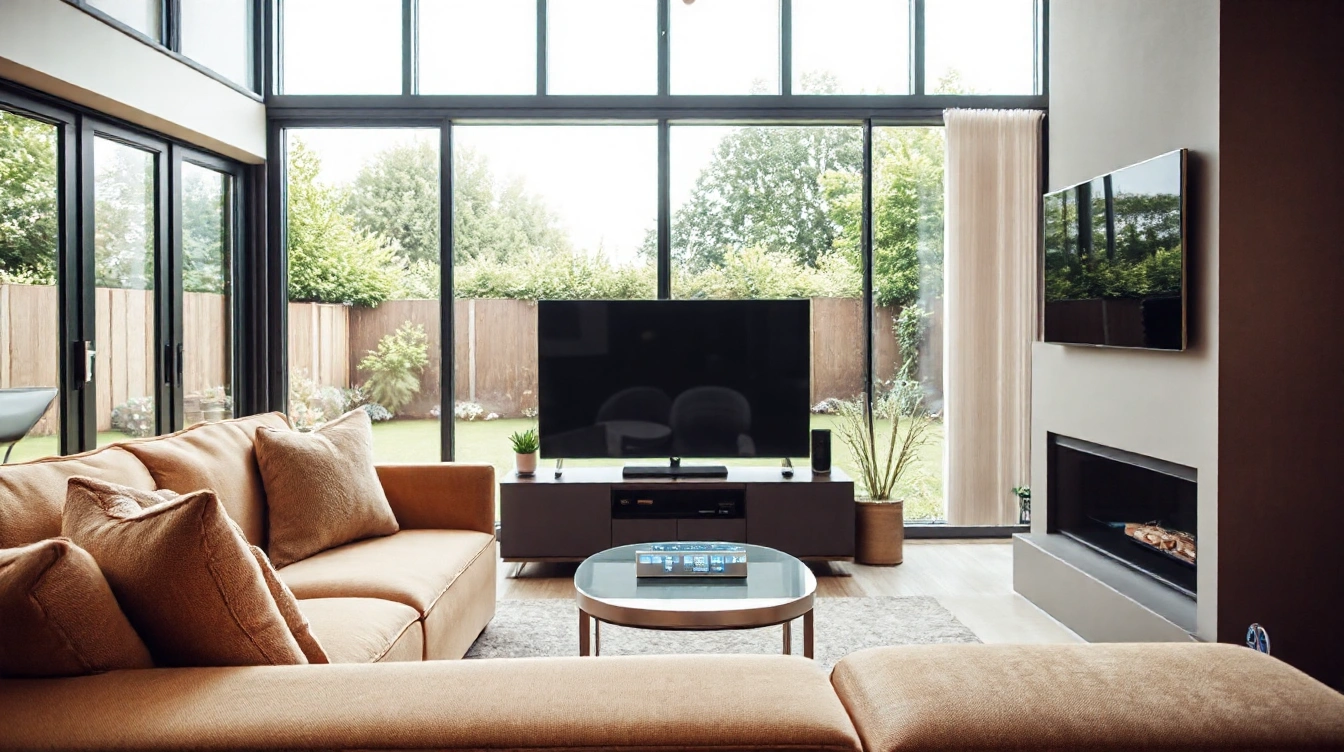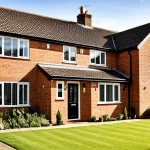Essential Smart Home Security Technologies for UK Homes
Smart home security is reshaping the way UK residents protect their properties. Among the most impactful devices are smart locks, security cameras, and smart alarms, which collectively form a robust defense system tailored for modern homes.
Smart locks offer convenience as well as enhanced control, enabling homeowners to lock or unlock doors remotely via smartphone apps. Many UK-compatible smart locks include features like temporary digital keys for guests and automatic locking, which is vital for peace of mind, especially in busy households.
Also read : How Can You Create a Perfect Work-from-Home Environment?
Security cameras in UK home security setups often incorporate motion detection and night vision, making them reliable for 24/7 monitoring regardless of lighting or weather conditions. Some models support two-way audio, allowing users to interact with visitors or deter intruders in real time.
Smart alarms integrate sensors for doors, windows, and movement, sending instant alerts to homeowners and, in some cases, directly notifying security services. Advanced smart alarms offer integration with other devices, creating a cohesive security ecosystem customized to UK homes’ unique requirements, such as compatibility with local monitoring centres.
Also to see : How is Remote Work Impacting the Housing Market in the UK?
Together, these technologies provide not only enhanced security but also convenience and adaptability, making them indispensable elements of any contemporary UK home security strategy.
Practical Benefits of Smart Technology for Home Security
Smart technology benefits for home security have revolutionized how homeowners protect their premises. One key advantage is increased monitoring and remote control capabilities. With smart security devices, UK residents can monitor their homes in real-time via smartphone apps, no matter where they are. This constant connectivity enhances safety and peace of mind.
Another significant home security advantage lies in real-time alerts and deterrence against intruders. Smart systems detect unusual activities and send instant notifications, allowing prompt responses. Some devices also feature automated alarms or lights to ward off potential threats, proactively protecting your property.
Moreover, smart features for UK homes often support integration with other smart home systems, such as lighting, thermostats, and voice assistants. This interconnectedness amplifies security by enabling actions like triggering security cameras when motion is detected or remotely locking doors.
These smart technology benefits collectively create a comprehensive, user-friendly security environment. By providing convenience and enhanced protection, they encourage homeowners to take proactive steps in safeguarding their assets and loved ones. Such innovations continue to make smart home security an attractive option for many households across the UK.
Selecting the Right Smart Security Devices for UK Properties
When choosing smart security devices for your home, it’s crucial to focus on UK-compatible products that align with specific local standards. UK properties often feature unique layouts and door types, such as sash windows and multi-lock doors, requiring tailored security solutions.
First, consider devices that support UK electrical standards and regulations, ensuring safety and reliable performance. Many smart locks and cameras come designed to work with the UK’s 230V power supply and specific Wi-Fi frequencies common here.
Popular UK-compatible smart security brands include Yale, known for its smart locks that fit typical British door locks, and Ring, which offers video doorbells optimized for UK door frames and lighting conditions. Another excellent choice is Arlo, providing cameras suited for variable UK weather. Each brand offers products certified for safety and network compatibility in the UK.
Additionally, check if the device integrates well with popular UK smart home systems like Google Home or Amazon Alexa with UK regional settings. Devices tailored for the UK market not only guarantee superior functionality but also offer easier installation with local customer support.
In short, selecting the right smart security devices means prioritizing UK-specific compatibility—physically, technologically, and legally—to protect your home effectively while ensuring seamless operation.
Step-by-Step Guide to Installing Smart Security Systems
Installing a smart security system requires careful preparation to ensure seamless operation. Before beginning, verify that your home’s Wi-Fi network is stable and covers all installation points adequately. A strong signal is vital for uninterrupted communication between smart devices. Confirm accessible power supply options—some devices rely on batteries, while others need wiring. Additionally, familiarize yourself with relevant legal requirements in the UK, such as regulations around CCTV camera placement and privacy laws to avoid potential complications.
Begin the installation with smart locks. Most units require removing existing locks and replacing them with the smart model. Pay close attention to the manufacturer’s instructions concerning alignment and calibration to guarantee smooth locking and unlocking. Next, install smart cameras at entrances or vulnerable areas. Position cameras to maximize field of view and minimize blind spots. Use the device setup app to link cameras to your network and test live feeds.
When installing alarms, locate sensors on windows and doors frequently accessed or targeted. Ensure magnetic sensors align precisely to activate the alarm. Test each component thoroughly during setup to detect any connectivity or function issues.
Be aware that UK users sometimes face challenges like Wi-Fi interference or incompatibility with older door frames. Troubleshooting often involves relocating routers, updating firmware, or adjusting mounting hardware. Following these installation tips ensures your smart security system performs at its best.
Mobile Integration and Smart Home App Management
Mobile integration is a cornerstone of modern remote security management, allowing users to control their security devices from anywhere via smart home apps. Syncing devices with mobile phones and tablets typically involves downloading the manufacturer’s app and linking it to your home network. This connection lets the app communicate with your security system in real time, providing instant access to cameras, alarms, and sensors.
Leading smart home apps offer features such as live video streaming, motion detection alerts, and two-way audio communication. For UK users, many popular apps include intuitive interfaces and seamless compatibility with multiple devices, enhancing user experience and convenience. Notifications can be customised to highlight specific events, ensuring you’re informed of critical security breaches without unnecessary interruptions.
To optimise your mobile notifications and controls, adjust alert thresholds for motion sensitivity and time schedules. This reduces false alarms and tailors updates to your daily routine. Additionally, enabling geofencing enables the system to automatically arm or disarm when you leave or arrive home, streamlining remote security management further.
By leveraging these mobile integration capabilities within smart home apps, users gain comprehensive and flexible control over home security — right at their fingertips.
Legal and Privacy Considerations for UK Smart Home Security
Understanding legal considerations is crucial when installing smart home security in the UK. The UK’s regulatory framework, including the General Data Protection Regulation (GDPR) and surveillance laws, dictates how data collected by devices can be handled. GDPR mandates that personal data is processed lawfully, transparently, and only for specified purposes. This affects how smart cameras and sensors record, store, and share footage or sensor data.
A key aspect is responsible data management: homeowners must ensure that their smart security system’s privacy settings minimize data exposure. Configuring devices to limit unnecessary data capture, using strong encryption, and controlling access reduce risks of breaches. Devices that store footage in the cloud require special attention to service providers’ compliance with data protection rules.
Another vital point is the consent of neighbours and visitors. UK home security regulations expect homeowners to respect neighbours’ privacy by avoiding recording public spaces or adjacent properties without permission. Informing visitors about active smart cameras and obtaining consent where necessary can prevent legal disputes related to surveillance.
By aligning smart home security practices with UK privacy laws and legal considerations, homeowners protect themselves and others while benefiting fully from modern security technologies.
Costs and Value of Upgrading to Smart Security
Navigating home security costs in the UK can feel complex. On average, basic smart security devices, such as cameras and sensors, range from £100 to £300 per unit. Installation might add around £150 to £400, depending on system complexity and professional involvement. However, many homeowners opt for user-friendly, self-installed kits, reducing initial expenses.
When weighing smart technology investment, consider long-term value. Unlike traditional systems that often require costly contracts, smart security offers flexible plans and remote monitoring, potentially lowering monthly fees. Moreover, real-time alerts empower quick responses to threats, enhancing overall protection and possibly lowering insurance premiums.
For those concerned about affordability and value, budget-friendly smart security solutions are plentiful, tailored to various home sizes. Smaller homes might find standalone smart cameras or motion sensors effective. Larger residences benefit from integrated systems combining alarms, cameras, and smart locks, all scalable to fit budgets.
Ultimately, investing in smart home security balances initial expenditures with ongoing benefits. The adaptability of these systems ensures coverage that grows with homeowner needs, making them a practical, future-proof choice for safeguarding property across the UK.









